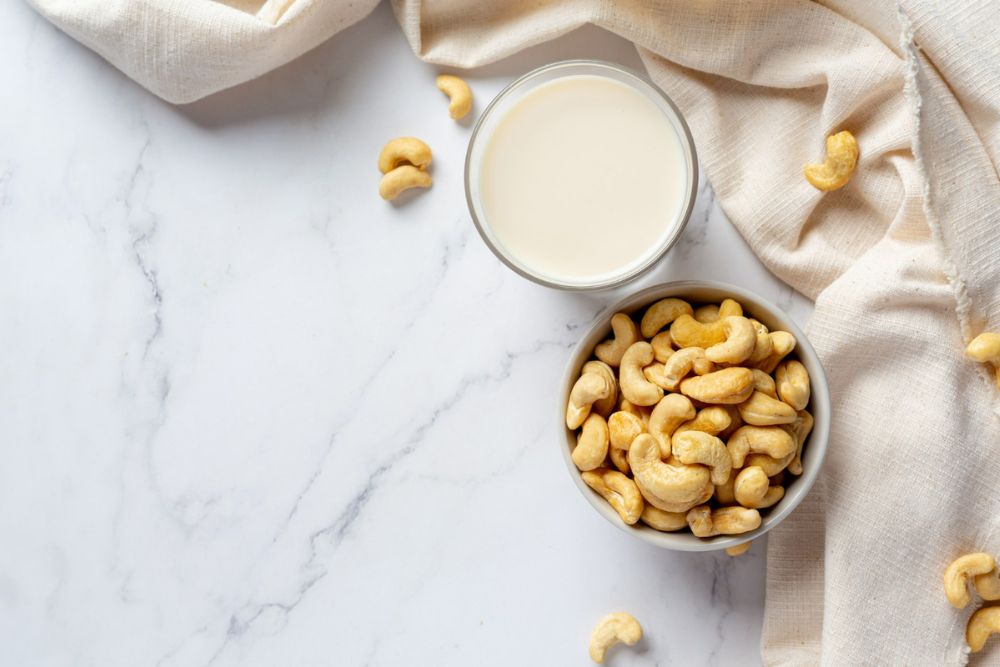Cashews, although considered a tree nut, are technically a dry fruit with one seed that becomes hard at maturity. Sweet and soft compared to most other nut varieties, a serving of cashews (about 18 whole nuts) is a great source of fiber, magnesium, calcium, potassium, and vitamins C and B. They are low in saturated fat and provide a rich source of “healthy fats” known as mono- and polyunsaturated fatty acids (MUFAs and PUFAs).
Studies show including nuts in your diet can:
- protect the cells against oxidative stress (damage) caused by free radicals.
- support brain health.
- help maintain blood sugar balance.
When selecting cashews, be mindful of added salt or sugars which would alter the nutritional value of this wonderful food. Also, make note of the use of hydrogenated oils which would increase the trans-fatty acid content–something that is not a great addition to a wholesome, healthy diet.
Cashews can be eaten whole (fresh or roasted), used in spreads and butters, and as a source for gluten-free flour. Cashew “nut milk” is a great alternative to dairy milk! It is just as creamy and lends a light nutty flavor to a bowl of cereal, cocoa, coffee, or baking. Chopped cashews make a great topping over yogurt, pudding, frozen treats, soups and stews. Cashew butter or milk can be blended into smoothies. There are so many ways to enjoy cashews–we just can’t cover all of them!
Resources
“FoodData Central.” Accessed June 2, 2022. https://fdc.nal.usda.gov/fdc-app.html#/?query=cashew
“Cashews: Nutrition, Health Benefits, and Diet.” Accessed June 2, 2022. https://www.medicalnewstoday.com/articles/309369

